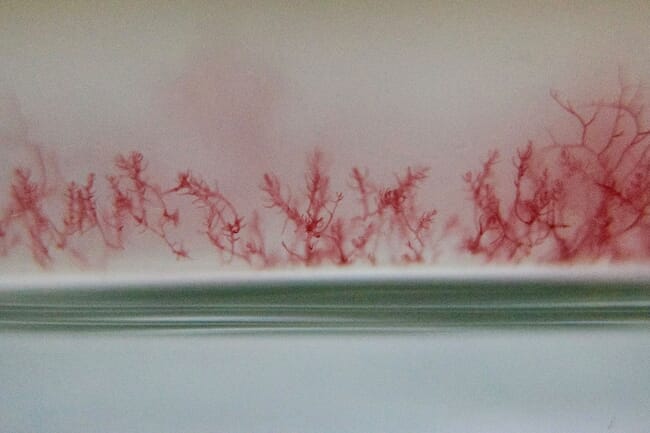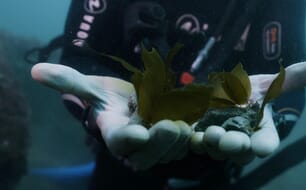
© Symbrosia
Funded by a $500,000 grant from the National Oceanic and Atmospheric Administration (NOAA), the two-year project will combine scientific research with Indigenous stewardship to enhance nearshore ecosystems and cultural traditions.
The initiative brings together a network of organisations, including Kuaʻāina Ulu ʻAuamo, Mālama Maunalua, Pacific American Foundation, Windward Community College’s Kia‘i Center for Limu Research, Kaua‘i Sea Farms, and Waianae High School. Together, they will cultivate limu in land-based systems and integrate it into loko i‘a (Hawaiian fishponds), supporting food security and marine biodiversity.
Limu kohu has long played a vital role in Hawaiian cuisine and traditional resource management. However, declining wild populations have spurred renewed efforts to protect and restore this culturally significant seaweed. This project builds on momentum from the Hawai‘i State Legislature’s 2023 declaration of the “Year of the Limu” and aligns with broader movements to revive Indigenous fishing practices.
“Due to the loss of cultural practices and the near extinction of fluent speakers of ‘ōlelo Hawaiʻi following Western influence, traditional limu practices and knowledge, which were verbally passed down through generations, have dwindled,” explained Makanahele Emmsley, a research scientist at Symbrosia, in a press release.
Beyond restoration, the partnership will promote education and community engagement to deepen awareness of limu’s ecological importance. By blending modern aquaculture techniques with ancestral knowledge, the initiative aims to create a sustainable model for native seaweed conservation in Hawai‘i and beyond.
“Restoration of limu practices, including fishery management and harvest, has the potential to produce healthy local food and enhance food security. But beyond physical restoration, this projects has the potential increase Native Hawaiian psychological health, support vibrant communities, increase biodiversity, and share generational knowledge," concluded Kai Fox, aquaculture extension specialist at the University of Hawai‘i Sea Grant College.




